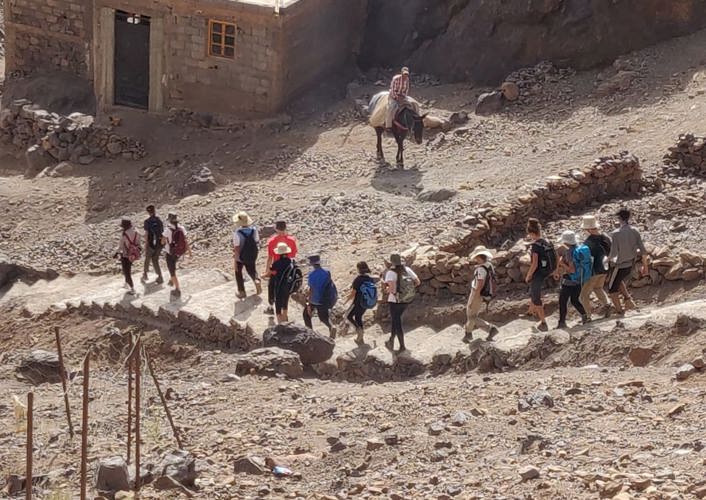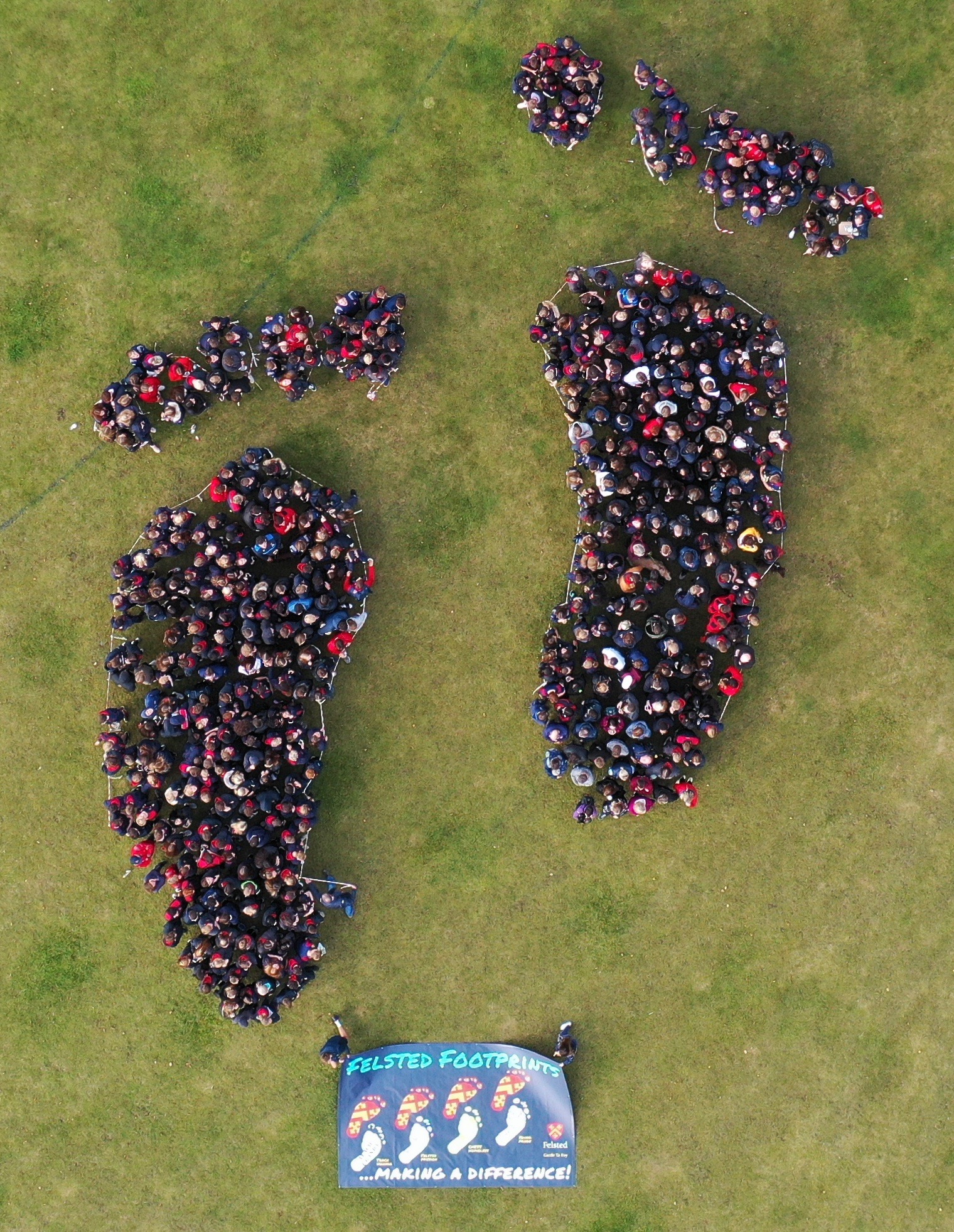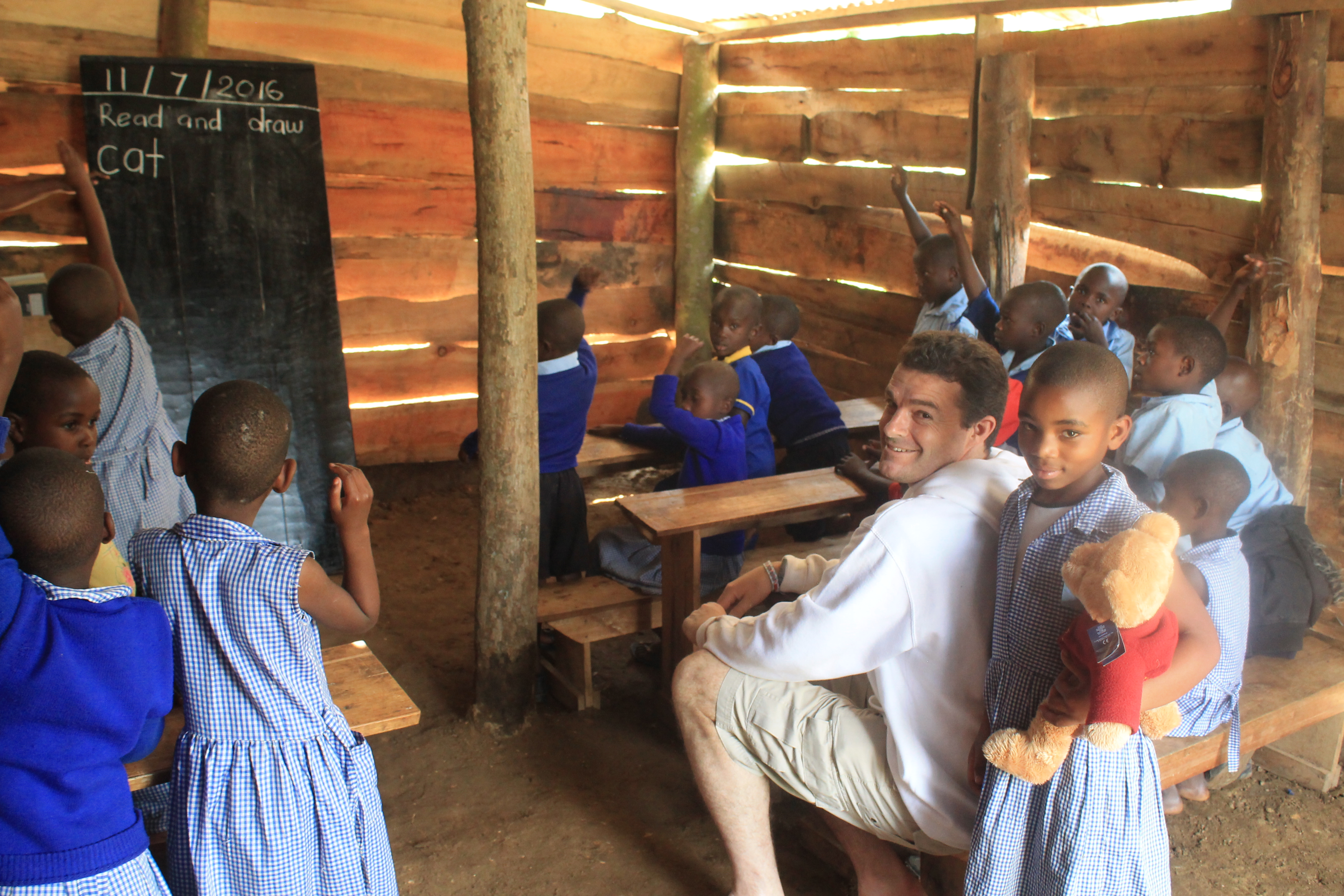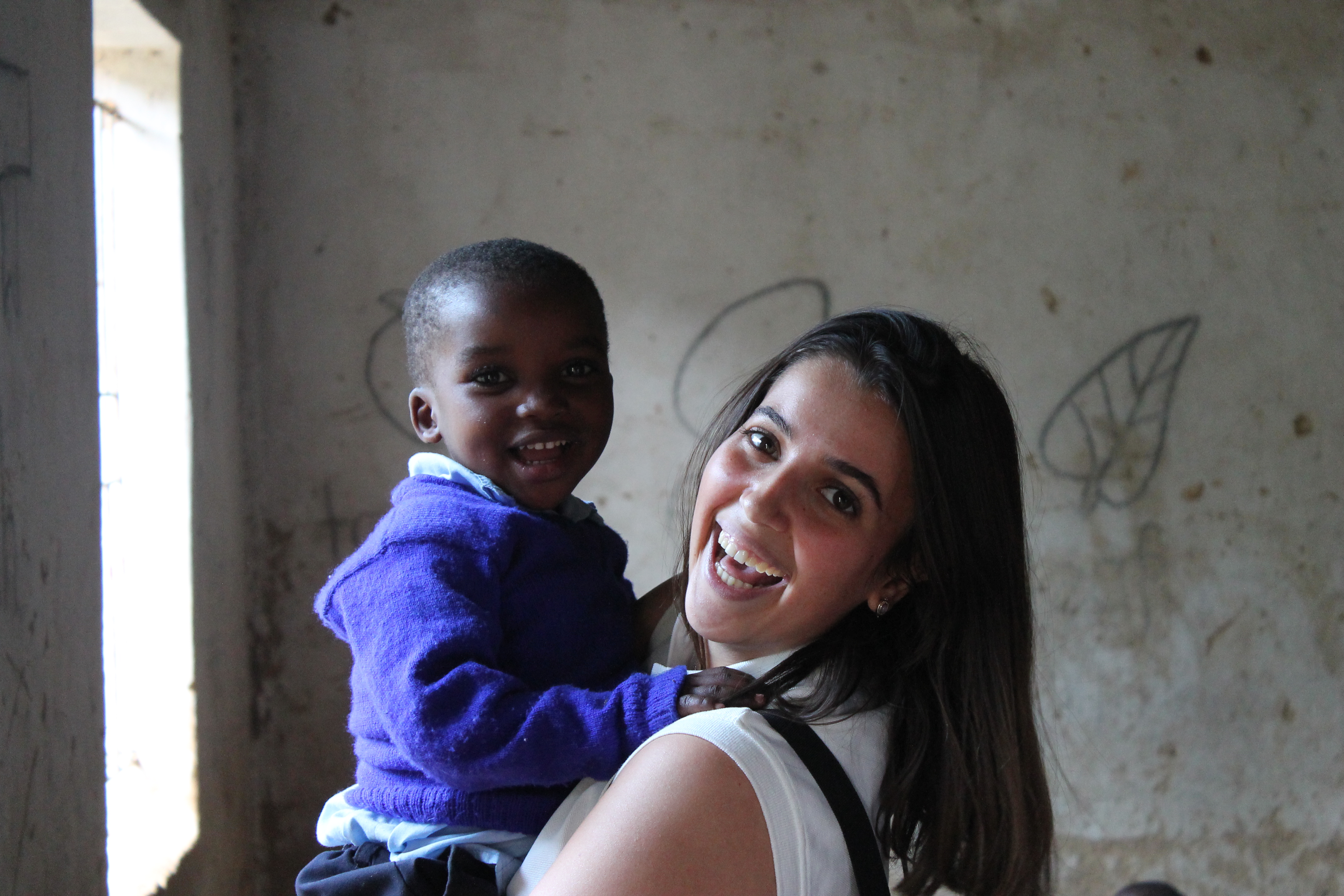Myth-busting: "Independent school students don’t understand the challenges some people face in life”

In the latest "myth-busting" blog, the chaplain of Felsted School, reverend Nigel Little, counters the view that “independent school students don’t understand the challenges some people face in life”.
Children in Uganda often have to walk an average of nine miles a day and not for the good of their health*. Whether collecting water, finding food or journeying to school, these young people sometimes put physical effort into the challenge of simply staying alive, day in and day out. They are relied upon by their families and their communities and if they are not able to complete their daily tasks, those around them quickly suffer. Even so these young people often thrive and the picture is not always bleak, especially when partnerships with independent schools offer so much mutual benefit.
Of course, it is far too much to expect all the stark reality of Ugandan life, a world away from our own, to be completely understood by boys and girls whose days are spent at their well-resourced schools in the United Kingdom. We can organise a non-uniform day or a sponsored swim; we can send the contents of the chapel collection plate to a non-government organisation that works out in the field, and we will have helped in some way.
The best thing we, as leaders in independent schools, can do is to use our connections and our inspiration to create opportunities for our students to meet, get to know and begin to empathise with those who materially have much less than we do. And once that bond and that empathy is established, help develop in our students the skills and the appetite, not just to put their hands in their pockets, but to go out into the adult world and make a difference.
Building genuine partnerships between schools and helping authentic friendships to grow is key. Our contexts may be different, and our experiences differ hugely, but this is part of the opportunity for mutual benefit. Young people from different cultures discover a rich commonality; we share similar hopes and fears, we face similar challenges and have the same aspirations. Talking together, learning together, relaxing together, playing, praying and even dancing together, reveals that whether we are opportunity ‘poor’ or ‘rich’ we all enjoy the human capacity for friendship.
That may not mean travelling as far as Uganda, though at my school, Felsted, it often does. Last summer, three sixth form students gave up their beach holidays to volunteer in a remote Moroccan village. In intense heat and discomfort, they worked to build a vital path to the main road to make a more reliable and safe route for food supplies, alongside the construction of a school for the women and children in the village. Meanwhile others were planting trees around a settlement in Sri Lanka to prevent homes and families from being flattened by elephants. Living and working alongside these local people, eating in their homes and playing games with their children, these students see and feel the challenges of life that are an everyday reality for many millions.
But around any corner in the UK you can find people living day-to-day in challenging circumstances. The Felsted Mission was founded 130 years ago in London’s East End and our students are regular visitors there. They chat to the elderly people for whom a lunch club and garden cafe are a lifeline, and they volunteer to serve in the night shelter. They team up with the students at the nearby Royal Docks Academy and play sport, share jokes and work together on academic projects. Closer to home, even the youngest Felsted Prep School pupils keep the elderly residents of the local care home company and hear the life stories of the people who live in the village almshouses.
Our students come back from these experiences changed forever. They feel the responsibility that being born in a wealthy country with access to an excellent education and every comfort brings. Many of them – in fact very many – determine to make a positive impact on the world, through commitment and effort and not just cold, hard cash.
When Sarah Brook left Felsted she founded the Sparkle Foundation, a feeding programme, health project and schooling centre that improves the life chances of children in Malawi. Felsted’s students regularly fundraise for this charity but more significantly a steady stream spend weeks at a time volunteering with Sarah. They also volunteer with another former Felsted student, Matthew Spacie MBE, whose charity Magic Bus supports street children in Mumbai, India, through engagement in sports and the teaching of life skills.
These two have made a colossal difference to the lives of many thousands and help to convince, the sometimes highly sceptical, that making an impact on this scale is eminently achievable. I find that young people are rightly wary of charity appeals; they are often bombarded with requests to give, they are fatigued by bloated promises of overnight change and not every family in our independent schools is from a wealthy background. I admire those who speak against tokenism - we should be on our guard against the merely symbolic - but as Sarah and Matthew show us, and as our partners encourage us, the fruits of sacrificial, sustained service are genuine.
Every pupil – a thousand – at Felsted recently undertook to walk three miles (a third of the nine-mile average of an Ugandan child) to fundraise for our four chosen school charities; Teach Uganda, The Felsted Mission, Young Minds (a mental health charity) and Chess (a local homelessness charity). Although donating to these causes was a worthwhile aim, this ‘Felsted Footprints’ initiative also asked students to scan QR codes with relayed news and encouragement from our partners. Many also completed the distance carrying as much water as they could, so as to visualise the change we were enabling as we funded a school hall, a water tap and made education a reality for at least 10 pupils in Uganda.
For independent school students to even begin to understand the challenges faced by others, there is no better way than to ‘walk a mile in my shoes’. Or maybe nine - true sharing, genuine friendships and real difference lies this way.



